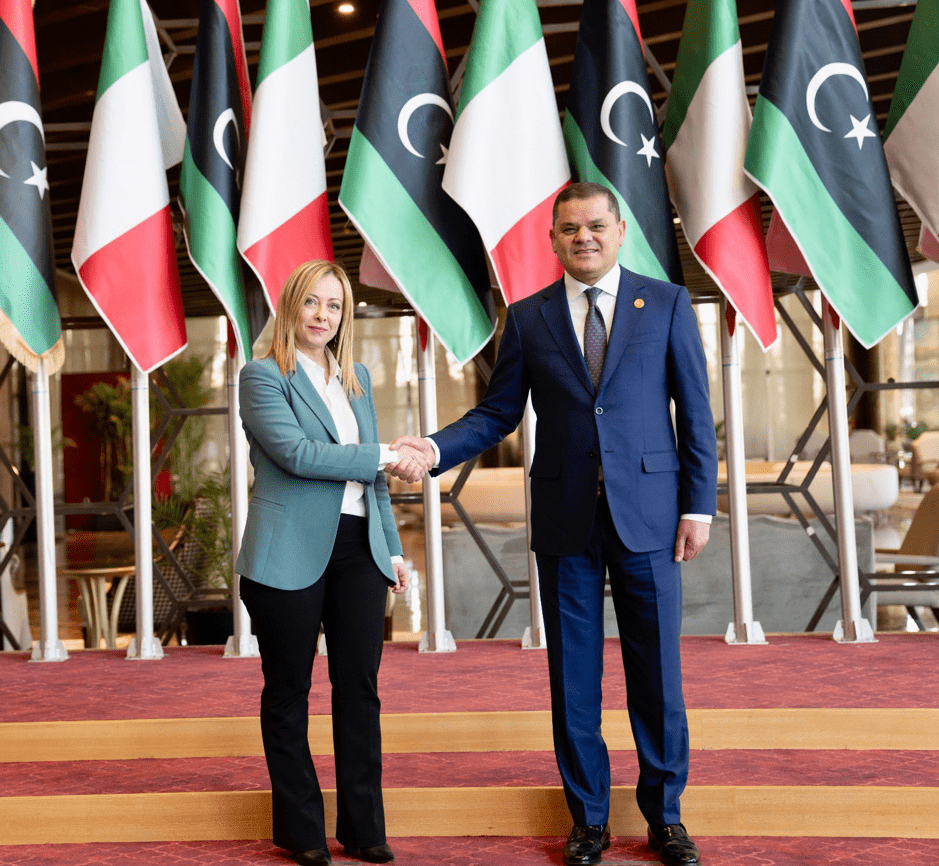
Italian energy giant Eni signed an $8 billion investment deal to explore two new Libyan gas fields following a quickfire visit to Tripoli by Italian Prime Minister Giorgia Meloni. The joint project between Eni and Libya’s state-owned National Oil Corporation (NOC) is expected to cater to the Italian and European energy markets following the embargoing of Russian hydrocarbon imports last year.
The most significant energy investment into Libya since 2000, the plan envisions the development of two separate offshore gas fields off Libya’s west coast as well as a carbon capture facility at Mellitah.
The new fields are expected to come online in just over three years and are estimated to be productive for 25 years, with Eni receiving 38% of the revenue generated. Libya is home to an estimated 1,505 billion cubic metres worth of proven gas reserves, as well as Africa’s largest proven oil reserves, but has been commercially and politically incapacitated since the overthrow of longtime autocrat Muammar Gaddafi in 2011.
Gas exports from Libya were helped by the removal of export restrictions on hydrocarbons in December. Currently, Italy and Libya are connected by the Green Stream pipeline, built under a similar agreement between Eni and the NOC 20 years ago and currently underutilised due to a lack of exports.
Italy has been proactive in the North African region on the issue of energy security to wean itself off Russian gas imports and transform itself into a European gas hub. A central tenet of Meloni’s nationalist platform for energy security, the ‘Mattei Plan,’ envisions Italy becoming the middleman between Europe and African hydrocarbon imports using pre-established business links.
While in Tripoli, Meloni, and Libyan authorities also committed to clamping down on illegal migration across the Mediterranean with promises to fund five new vessels for the Libyan Coast Guard.
The agreement comes on the heels of a similar deal reached between Eni and the Algerian oil company Sonatrach last week following a Meloni visit to Algiers. Italy is increasingly viewed as Algeria’s preferred EU partner on account of worsening relations with Spain over the dispute in Western Sahara.
For Meloni and her administration, the Mediterranean forms a crucial battleground in safeguarding Italy’s energy and border security and validating the country’s ability to operate on a bilateral basis with non-EU partners. The diplomatic blitz can be expected to continue as Italy branches out of its traditional sphere of influence to advance its goals.
